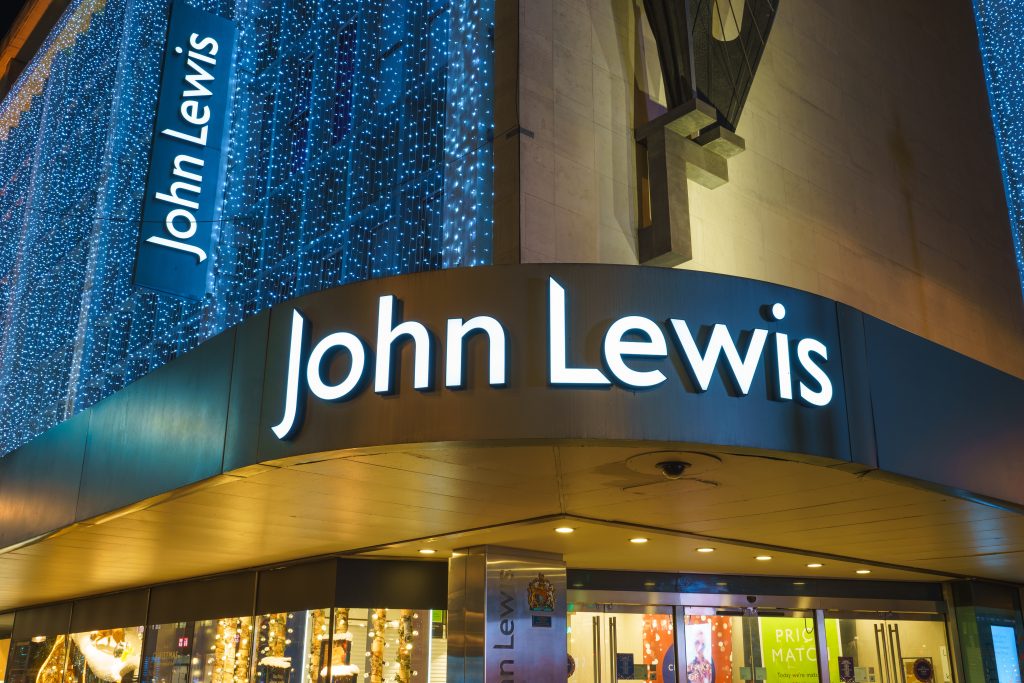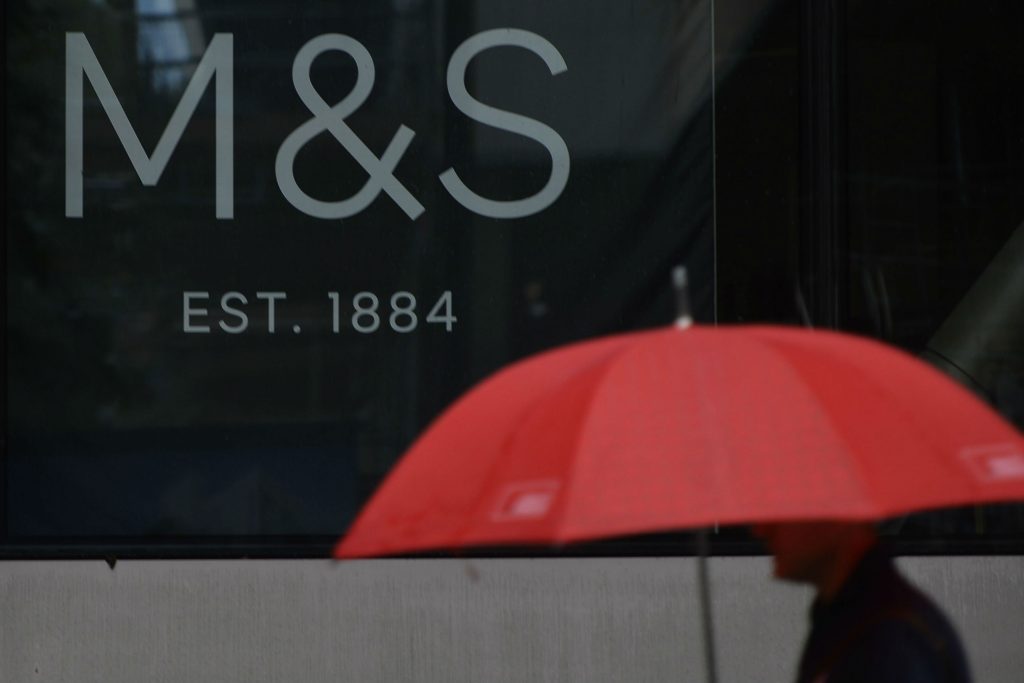It has been much-debated for the past few years but John Lewis has finally confirmed it is ditching its Never Knowingly Undersold price promise this summer.
But is scrapping the pledge that underpins the department store’s value credentials a risky move in the most inflationary environment in the past 30 years? Not if that price promise has become confusing and irrelevant, says Savvy Marketing founder Catherine Shuttleworth.
“Nobody really knows what it is and how it works, particularly those under 50,” she says.
The name of the pledge, Never Knowingly Undersold, which was introduced in 1925, does sound rather old fashioned and, more worryingly, does not make it abundantly clear what is being promised. What does “undersold” actually mean?
“It sounds like something from Grace Brothers,” says Shuttleworth, referring to the stuffy fictional department store in TV programme Are You Being Served? “It’s from another era.”

It’s not just the name of the price promise that is from another era. Never Knowingly Undersold does not apply to online sales, which is ironic given that more than half of John Lewis’s own sales come via the channel.
Ignoring online means that Never Knowingly Undersold – in the department store’s own words – “is no longer enough to assure trust because it applies to fewer and fewer sales as shopping moves increasingly online”.
John Lewis executive director Pippa Wicks explains: “Never Knowingly Undersold has been a cherished sign of trust for John Lewis for a century but it doesn’t fit with how customers shop today as more purchases are made online.
“Customers are tightening their belts and we’re responding so John Lewis is more affordable for every customer, every day whether shopping in-store or online.”
Controlling its own prices
Toby Allen, executive creative director at advertising agency The & Partnership says the decision to ditch the price promise would not have been taken lightly.
“It is likely they had no choice due to the commercial reality of delivering the promise. But the strength and trustworthiness of the brand is strong enough to withstand dropping the rational value promise.”
As much as Never Knowingly Undersold was designed to give customers confidence in John Lewis’ prices, it also led to the retailer having little control over its own prices.
It is forced to discount when its rivals discount, which limits the impact of its own promotional events and erodes margin.
“Never Knowingly Undersold made John Lewis prisoners of its competitors’ pricing strategies,” says veteran retail analyst Richard Hyman. “It hasn’t worked for quite some time and it had to go.”

John Lewis says it will now “proactively lead on great value, rather than reacting to other retailers’ price change”.
READ MORE: Leaked John Lewis memo reveals profit surge
Do customers need reassurance on price?
Despite Never Knowingly Undersold being more than a tad confusing, it did offer some price reassurance to customers. “We mightn’t have fully understood what it meant but we did know we weren’t going to get ripped off,” says Shuttleworth.
However, Hyman says that even without the price promise in place shoppers do inherently trust that John Lewis will sell goods at a fair price.
This does need to be reinforced, however, with value messaging in stores and online and by retaining competitive price points.
John Lewis is investing to ensure that this is the case. The retailer has earmarked £500m to invest in making sure the customer gets “everyday Quality & Value”. The department store says this is 25% more than it invested in keeping prices affordable last year.
There is little detail on what this £500m will be spent on but it is likely a sizeable chunk will go towards building on the success of its value own-brand Anyday.
The brand, which spans fashion, homeware, technology and nursery, was introduced in spring last year and is already the most successful launch ever, according to John Lewis.
Anyday prices are on average 20% lower than its other own-brand ranges and it has notched up £125m in sales so far, attracting more than two million customers in just nine months.
Impressively, a quarter of these shoppers are new to John Lewis, which suggests that it is attracting a new price-conscious customer.
The retailer will expand Anyday into new areas including kidswear, outdoor furniture and swimwear for spring summer 2022.

Anyday has clearly been a successful launch, however, Hyman believes John Lewis needs more than just a great own brand. It needs strong value messaging across the entire organisation.
The department store today referred to “everyday Quality & Value” replacing Never Knowingly Undersold, however Chris Whitson, global head of strategy at advertising agency Iris, does not think this is a strong enough message for customers.
“Quality & Value does not differentiate John Lewis or say what makes it special. It really needs to find a way of recapturing what it was trying to achieve when it came up with Never Knowingly Undersold and make it relevant to today’s retail market. It’s more than just quality and value, which is what most brands look to offer.”
As much as this is important for customers, Whitson, who worked with John Lewis some years ago, says it is just as important to its staff.
“When I worked with John Lewis it was clear to see how much Never Knowingly Undersold meant to partners,” says Whitson. “It guided what they did and how they served the customer. It signified an excellence in service and differentiated them.”
“They need to be able to clearly articulate to customers and partners what it is that makes John Lewis special.”
Focus on service, not price
Rather than ploughing investment into price, John Lewis would be wise to also put some of its focus into making sure its service is exemplary.
In fact, there is a question mark over just how important cheap prices are to the John Lewis shopper. Hyman believes quality and service are just as critical.
“Customers want value, but that’s much more than low price. You can have products that have a high price point but are still great value because they’re highly desirable and of excellent quality,” he says.
“Chasing the market down on price puts you in a weak position if others are set up to operate on a lower cost base than you,” he says referring to John Lewis’ online competitors.
Hyman contends that rather than ploughing money into keeping prices low, John Lewis should focus on keeping its customer service standard high.
“Customer service has traditionally been John Lewis’ greatest strength, giving it a significant competitive strength against its rivals. Its service has been in decline for some time now and when it comes to online, where the majority of its sales are now, its service does not stand out at all.”
Shuttleworth agrees and highlights online rival AO.com as a business that not only delivers low prices but excels at customer service online.
While it may be time to do away with the slightly old-fashioned notion of Never Knowingly Undersold, good old-fashioned customer service, be it in-store or online, is just as relevant as ever. John Lewis must retain this to return to former glories.
Click here to sign up to Retail Gazette‘s free daily email newsletter


















